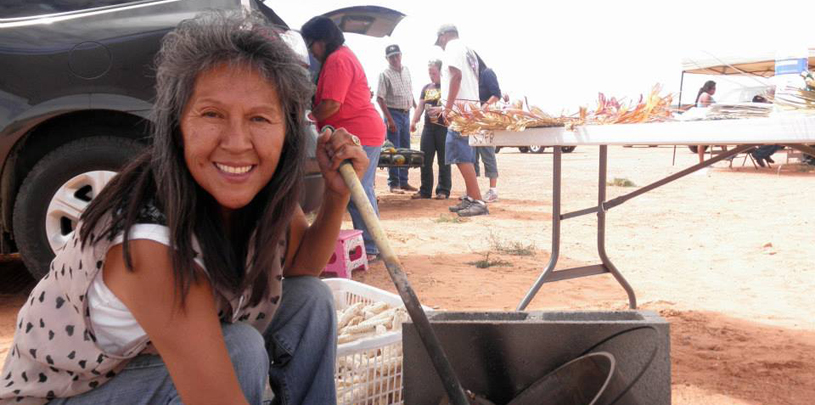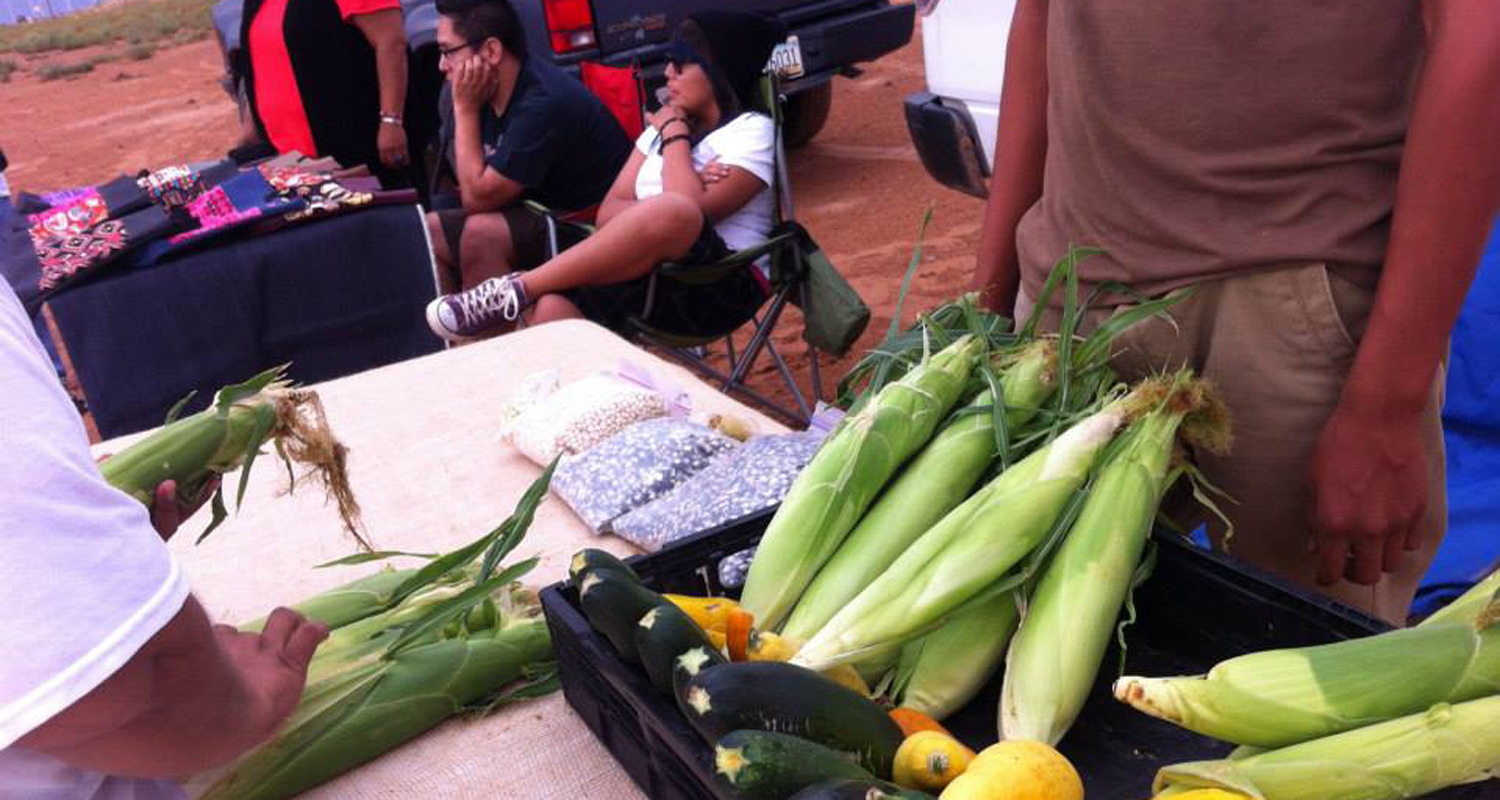
 by Tony Skrelunas, Native America Director
by Tony Skrelunas, Native America Director
Early Saturday morning, pickup trucks will file into a dusty parking lot behind the Denny’s in Tuba City, on the western edge of Northern Arizona’s vast Navajo reservation, many still with their headlights on. Tuba City has long been a hub for trade and collaboration between Native American tribes in the Colorado Plateau and, for the past three years, the red dirt lot has been the site of the popular weekly Painted Desert Farmers Market. Hopi and Navajo farmers travel from miles around—Hardrock, Curly Valley, Redlake—to offer corn, melon, squash, tomatoes, and other products, including local honey, in an area where fresh produce can be hard to find unless you grow it yourself. The market is at the heart of a larger effort to put traditional knowledge to work in service of sustainable development, increasing opportunity and improving quality of life in a region that is ground zero for climate change.
“We’re a food desert,” said Alicia Tsosie, the Grand Canyon Trust Food Corps member stationed at Tuba City’s Johns Hopkins Center for American Indian Health, who coordinates the farmers market.
The Navajo Nation covers nearly 18 million acres, larger than Connecticut, Massachusetts, Rhode Island, Maryland, and Delaware combined, but has only twelve supermarkets.

“We offer people access to a healthier option during harvest season—high quality herbicide and pesticide free food much cheaper than supermarket prices,” Tsosie said. Market vendors accept EBT and SNAP cards.
This week, it’s also the site of the 3rd annual Unity Thru Sustainability Expo, where community advocates and social entrepreneurs will set up traditional food booths, offer workshops on traditional farming and water conservation practices as well as green building, alternative energy, and other sustainability topics. In a region drastically affected by climate change—a freak frost last May destroyed many crops—cultural leaders and others are increasingly turning to traditional knowledge systems which have allowed tribes to live sustainably for millennia in an area that receives fewer than seven inches of rain per year.
The free Expo will include the ribbon cutting and grand opening of a new interactive Unity Thru Sustainability Learning Pavilion. The Colorado Plateau Inter Tribal Farmer Knowledge Exhibit, the pavilion’s first rotating exhibit, will showcase the traditional cultural knowledge of ten Colorado Plateau tribes whose elders and cultural experts have been gathering since 2009 to share traditional practices and collaborate to protect farming and food systems, restore watersheds, and preserve culture and sacred sites. The pavilion will include storytelling and cultural history displays as well as heirloom seed collections.
GMO seeds are of particular concern to the traditional farming community here.
“If our traditional seeds change, we change. If our seeds die out, we die out."
-Alicia Tsosie
Traditional farming is dwindling, and yet these drought-resistant practices, which have helped tribes thrive for generations, are perhaps the best bulwark against the impact of climate change.
With the pavilion in place, Tsosie hopes to see the farmers market expand to include Zuni, Apache, and other neighboring farmers. At this Saturday’s farmers market, the last of the season, youngsters will heft prize vegetables over to the Youth Produce Contest table, where judges will hand down prizes for heaviest melon and largest squash, keeping traditional sustainable farming practices alive for the next generation.
3rd Annual Unity Thru Sustainability Exposition & Pavilion Grand Opening
Saturday, October 4, 2014
7am-3pm
Unity Thru Sustainability is a partnership between eight community organizations, including the Grand Canyon Trust, spearheaded by the nonprofit Moenkopi Developers Corporation with volunteers from tribes across the Colorado Plateau.
A small victory in the legal case challenging Daneros uranium mine, near Bears Ears National Monument.
Read MoreMugs, handmade soaps, high fashion, jewelry and more. There's something for everyone on your holiday shopping list.
Read MoreBears Ears petroglyph panels and cultural sites protected by new proposed management plan.
Read More